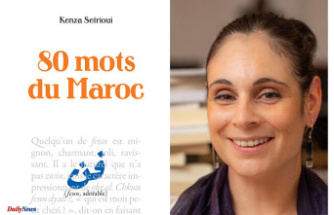The so-called right of emergency representation for spouses and life partners has been in effect since the beginning of the year. But what does that actually mean? We clarify the most important questions.
Whether it's an accident, a stroke or a heart attack: if a patient can no longer consent to medical treatment themselves, their spouse or life partner has so far not been able to do so for them either - unless they have written authorization to do so. This has changed since January 1st.
A so-called emergency or spousal representation right now automatically applies to health issues. What exactly does that mean? Five questions and their answers.
Emergency representation right - what does that mean in practice?
Suppose a person comes into the hospital, is unconscious and therefore unresponsive. So that the health condition does not worsen, something must be done quickly. Only: The person himself cannot consent to a certain treatment.
Since the beginning of 2023, the new paragraph 1358 in the German Civil Code (BGB) has given spouses and life partners a mutual right of representation in health matters in emergencies and in the case of short-term measures involving deprivation of liberty.
"This right of emergency representation is limited to six months," says Verena Querling from the North Rhine-Westphalia consumer center in Düsseldorf. During this time, the doctor treating you is released from the duty of confidentiality towards your spouse or partner. In order for the right of emergency representation to apply, there must be no other power of attorney. If a guardian has already been appointed by the court, this also takes precedence.
The wishes of the patient are also decisive in the right to emergency representation. These wishes can be laid down in a living will - or they can be determined in a discussion between the doctor and the patient's relatives or confidants.
Short-term custodial measures - what does that mean?
"It could be a bed rail or the attachment of a waist belt," says Berlin lawyer Dietmar Kurz. Fixing the patient or sedative drugs also fall under the category of measures that deprive the patient of their liberty.
What is not covered by the right of emergency representation?
The healthy spouse or life partner cannot take care of any financial matters for the sick person - for example, use their money to meet certain demands or assert claims against authorities, such as the social welfare office. "The healthy spouse or life partner is also not entitled to terminate the sick person's contracts or sell their car with the right to emergency representation," says consumer advocate Verena Querling.
Speaking of contracts: The healthy spouse or life partner can conclude contracts for the sick person, which are necessary within the six months for medical treatment or rehabilitation measures.
Is the doctor treating you obliged to check whether the requirements for exercising the right to emergency representation actually exist?
"No - the doctor only has to ask the spouse or partner whether he or she is entitled to exercise the right of emergency representation," explains Dietmar Kurz. "If another person, such as the daughter or son, is designated as the authorized representative in a power of attorney, this person represents the sick person and not the spouse or partner," said Kurz.
The right of emergency representation also does not apply if spouses or life partners live separately. It is also possible that the sick person has lodged an objection to the right to emergency representation, which is filed in the Central Pension Register (ZVR). Objecting to the right to emergency representation means that the sick person does not want the other person to represent them.
The doctor now issues a certificate with the results of the survey. If the requirements for the right to emergency representation are met, the doctor records the point in time at which the six-month representation period begins.
Why are health care powers of attorney, living wills and living wills still useful?
"Because the right to emergency representation is only limited to health matters," explains Verena Querling. Other things, such as banking or insurance matters, are not covered by the emergency representation right.
In addition: The emergency representation right is limited to six months. If the ill spouse or life partner is still not able to make decisions themselves after six months, a guardian must be appointed - unless there is a power of attorney.
(This article was first published on Sunday, January 15, 2023.)












